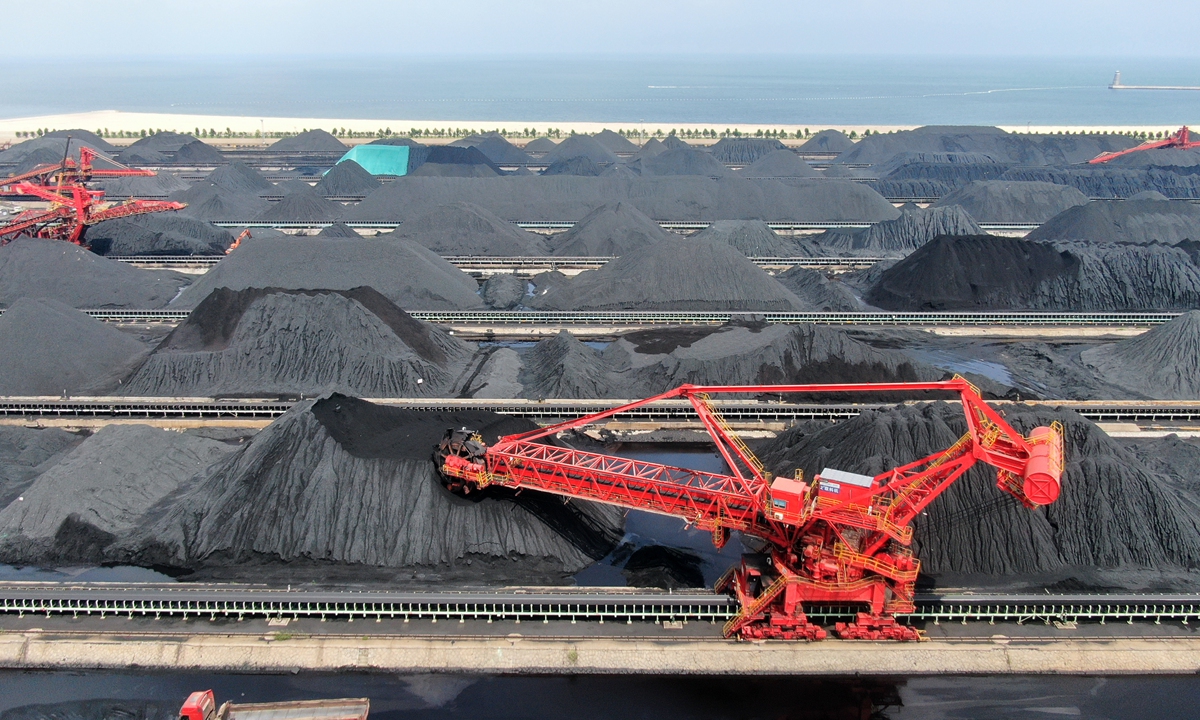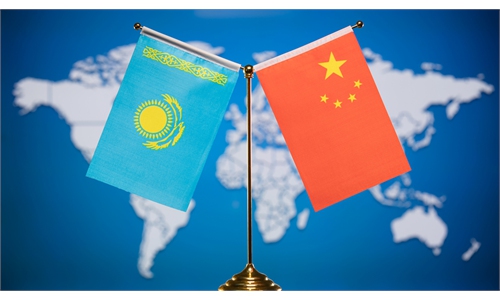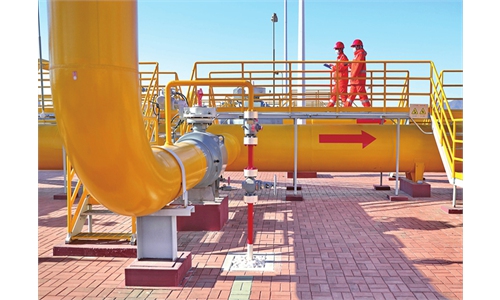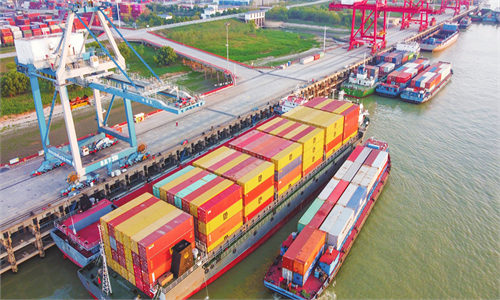China ramps up efforts to ensure energy supply for winter
Nation to step up cooperation with Russia, Mongolia and Kazakhstan

A view of the coal yard at the Rizhao Port, East China’s Shandong Province on August 18, 2022. Red reclaimers are rumbling, with trains full of goods ready to be exported. In July, China exported 230,000 tons of coal and lignite, a year-on-year increase of 171.6 percent, customs data showed. Photo: VCG
China is deploying both domestic and overseas energy resources to ensure stable supplies for winter heating, while further optimizing the country's energy mix to enhance supply security amid a complex international energy situation, and officials stressed on Wednesday that energy supply remains sufficient and stable.
Industry analysts also expect overall stable energy supply for this winter and spring 2023, thanks to policy measures to increase energy output that will effectively relieve supply pressure.
Since the beginning of the winter heating season, the country's supply of coal for power generation has remained at a high level, with the coal inventory at a historical high level of around 175 million tons, the National Development and Reform Commission (NDRC) said on Wednesday.
Coal inventories at major thermal power plants in Southwest China's Sichuan Province reached 5.98 million tons as of Tuesday, exceeding the goal of 5.8 million tons, according to a report on the Sichuan Provincial Economic and Information Department website on Wednesday.
The sufficient storage of coal will ensure full operations of coal plants during the dry season from December to April, it said.
A province that attracted nationwide attention this summer due to severe power shortages, Sichuan encapsulates the country's efforts to guarantee energy supply during the winter peak demand season.
Centrally administered state-owned enterprises in the sector are also making their utmost efforts in this regard.
China National Petroleum Corp (PetroChina)'s Liaohe oilfield in Northeast China's Liaoning Province, which shoulders the responsibility of supplying natural gas for Northeast China and the Beijing-Tianjin-Hebei region, has made sufficient preparations in increasing gas exploration, storage and supply capability in order to increase the supply for heating season.
The field's newly added daily gas output has reached 193,000 cubic meters, and another 30,000 cubic meters of daily capacity could be flexibly released according to demand, PetroChina said in a report on Wednesday.
Meanwhile, the China-Central Asia Gas Pipeline, China's first transnational gas pipeline, has delivered over 40 billion cubic meters of natural gas to China this year, with about 120 million cubic meters of natural gas a day, according to China Oil & Gas Pipeline Network Corp.
In August, the State Council announced that measures will be taken to support electricity producers under central administration in issuing 200 billion yuan ($28.22 billion) of special-purpose bonds for energy supply.
As a crucial tool for ensuring energy supply, the issuance of such bonds is picking up. According to data from Wind, a financial information database, Chinese power producers have issued over 120 billion yuan of special-purpose bonds.
In the meantime, China has been strengthening energy cooperation with countries including Russia, Mongolia and Kazakhstan.
Chinese Premier Li Keqiang on Tuesday held a meeting with Kazakh Prime Minister Alikhan Smailov via video link, calling for Kazakhstan to ensure the stable supply of gas to China in accordance with the contract and increase its gas supply in winter as much as possible, saying that energy cooperation is the cornerstone of practical cooperation between the two countries.
At a bilateral energy forum on Tuesday, China and Russia also vowed to further strengthen cooperation in energy trade.
Huang Yongzhang, vice general manager of PetroChina, said at the 4th China-Russia Energy Business Forum on Tuesday that in the first 10 months of 2022, Russia exported 33.26 million tons of oil to China via pipelines.
Meanwhile, as an important part of the integrated cooperation between China and Qatar, China Petroleum & Chemical Corp and QatarEnergy signed a 27-year liquefied natural gas (LNG) purchase and sales agreement last week, which will see the annual supply of 4 million tons of LNG to Sinopec.
"The overall energy supply in China is sound, with the output of coal, petroleum and natural gas on the rise on a yearly basis while market demand is relatively stable," Jin Lei, a professor with China University of Petroleum, told the Global Times on Wednesday.
A series of energy cooperation deals, especially the long-term deal with Qatar, will further diversify the nation's sources of energy and greatly contribute to China's energy supply security, as well as the country's goals of achieving carbon peak and carbon neutrality, he said.
However, China still depends heavily on imported oil and gas, Jin pointed out, urging more efforts to develop renewable energy and increase exploration by domestic energy producers to prevent potential supply risks.



